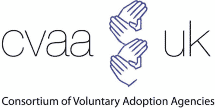By trial and error we’ve got to know each other’s personalities, foibles and eccentricities – and it’s made us all more secure
The past three years seems to have passed both as slow as forever and as fast as the blink of an eye. Over the years we have had it all. Love. Laughs. Tantrums. Lack of sleep. Hitting. Biting. You name it, we’ve had it.
I’ve learnt that I had never actually done a hard day’s work before having children, that it’s a constant juggling act, that somewhere between 6-7pm every child turns into a cross between a spinning top and an over-stimulated chimpanzee and that I’m more capable than I give myself credit for.
I really feel we’ve formed a strong bond with our children, and that as well as love, there is trust – we really are doing this by trial and error, but we hope we are getting something right.
I remember the unknown of going to the play park with our children in the early days when they struggled to recognise us. For a long time, they’d be looking round, and you could see on their faces the question: “Is that Daddy? I think it’s that man over there, he looks tall enough.” Likewise, we would be panicking if we couldn’t see them in case they ran off and didn’t come back to us. Not to mention having two active toddlers with a fondness for mud, bark and water, running in opposite directions straight towards trouble. Now at the play park, they recognise our voices instantly, they both “check in” with regularity and they occasionally even do what we ask them to. They still run off but are secure in the knowledge that, if they turn around to check, one of us will be there.
We like to think we know what will make them both giggle and when they are frightened or just hungry; and we recognise their cries/shouts of “dad/daddy” amongst all the other cries. Knowing them better helps us empathise with our children (adopted or not) when, through crankiness, they are just trying to control the situation, or genuinely being fearful when they’re doing something for the first time.
It has taken time to get to know each other’s personalities, foibles and eccentricities. But the knowledge has made us all more secure. I no longer worry if people can spot, I have no idea what I am doing when trying to handle a tantrum in the street, and I now know when their ears get redder and redder their desperate for sleep. They no longer hold themselves still and quiet at bedtime, instead they press every button they can to get us to let them stay up, just like every other child does.
Like all parents, we’ve had to learn how to be parents alongside learning about our children.
In adoption, the issues we face are deeply emotionally rooted, stemming from a lack of permanence as a result of multiple sets of carers and poor experiences in early life. These experiences can manifest themselves as poor or even anti-social behaviour. Having a sense of permanence means you know that things and people exist when you can’t see, touch or hear them, but without it children fear that they themselves don’t exist and need to reassure themselves constantly.
Their whirlwind tantrums, how the simplest and most menial tasks can take hours, I feel, when that moment of peace finally comes, that we got through something huge, and I say, ‘If you two were anyone else, that would not have been cool.’ I mean it. I would not take that crap from anyone else. In so many ways being an adoptive parent is exactly as joyful, relentless, messy and profound as being any parent.
We don’t have a crystal ball. We can’t predict the future. There will be many hurdles (their teenage years!), but there will be so much joy. We prepare as best we can, as we continue to learn from each other through a space of understanding, openness, honesty and love. No painting of perfection.
So, were our children going ballistic because they feel unsettled, insecure in their attachment to us and need to draw our attention constantly back to them? Have they been damaged by their early life experience and just cannot master self-control? Was it our fault – are we just awful at this parenting lark and can’t manage our own children? Do they just have energetic personalities and is it nature rather than nurture?
Or do they simply need a good sleep?
In adoption nothing is straightforward, but I can say the rewards of getting to know your children –and allowing them the time to get to know themselves – outweigh the difficulties.
Damian Kerlin
If you are interested in finding out more about adoption, please contact using the contact form on this website or by emailing info@stdavidscs.org





